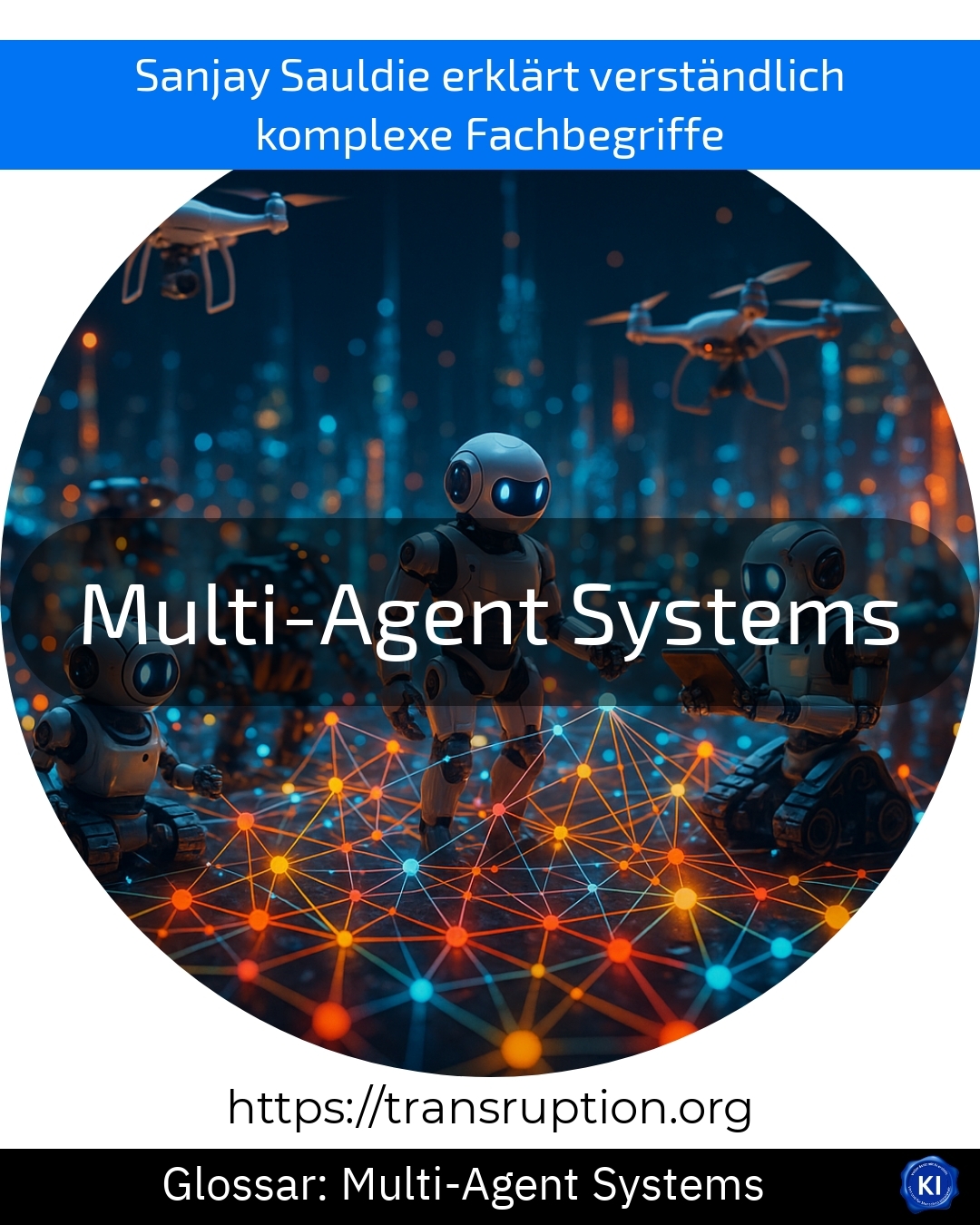Multi-agent systems are particularly at home in the fields of artificial intelligence, automation, industry and Factory 4.0. The term describes systems in which several "agents", i.e. independent programmes or robots, work together to solve complex tasks. Each agent can act independently, collect information and make decisions.
Imagine a modern factory: Many robots work together to manufacture products. Each robot is responsible for a specific task, but they communicate with each other and adapt their activities if, for example, a bottleneck occurs or a component is missing. This enables them to work more efficiently than if each robot worked alone and rigidly according to plan.
Multi-agent systems therefore ensure that processes become more flexible, faster and more intelligent. They are crucial for the automation of processes - whether in factories, logistics networks or even in the smart home, where various devices such as thermostats, blinds and lights react to each other in a coordinated manner. These systems often make operations safer, more energy-efficient and more economical.
In short, multi-agent systems enable many intelligent units to work together to improve the functioning of complex processes.















